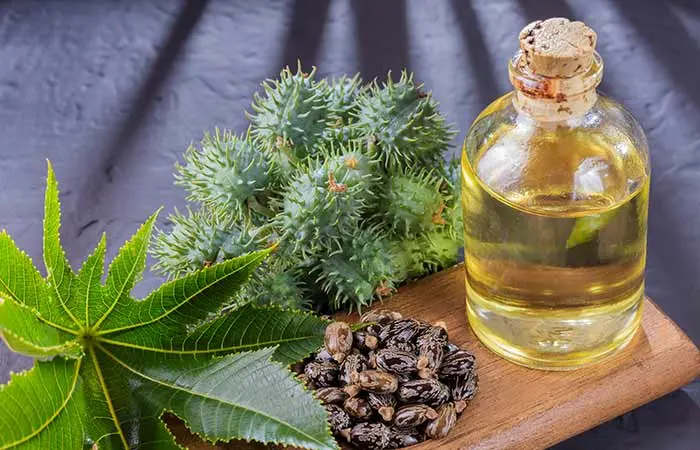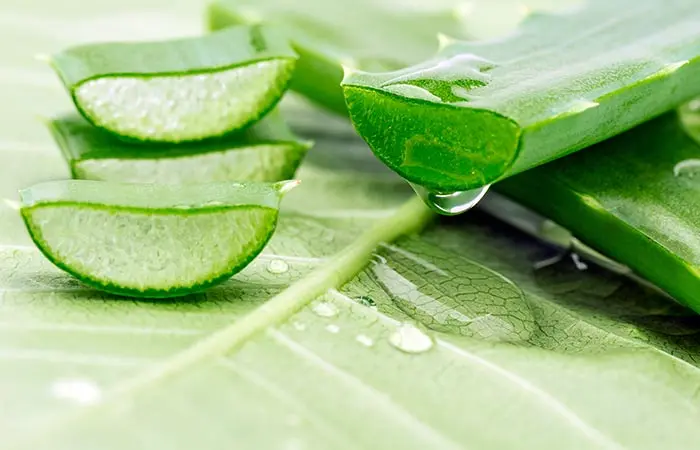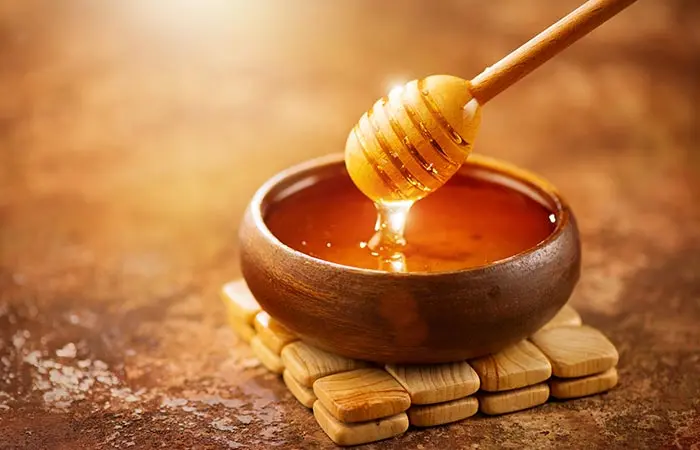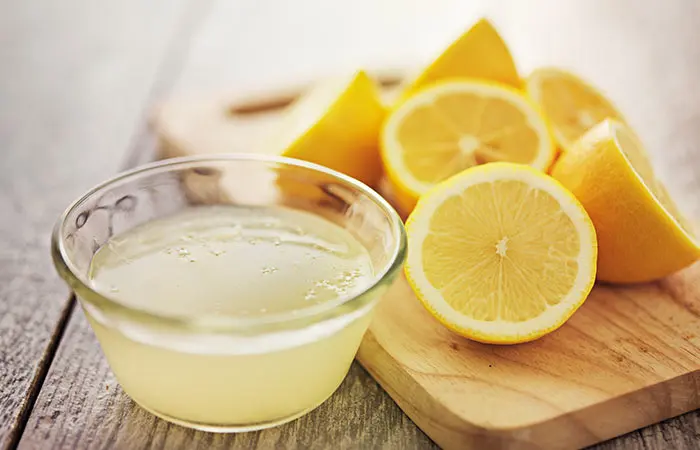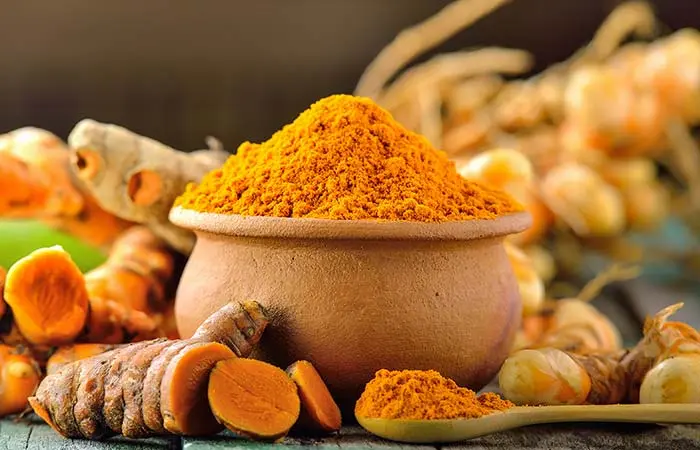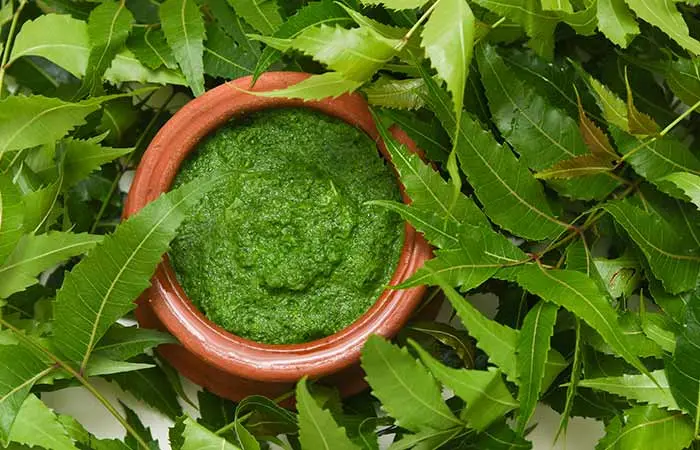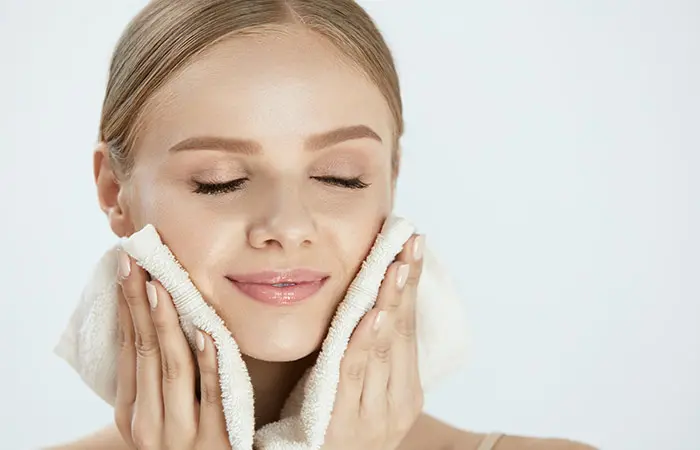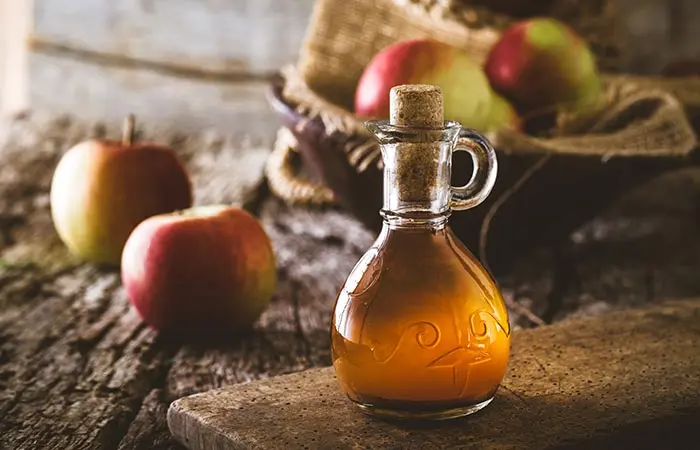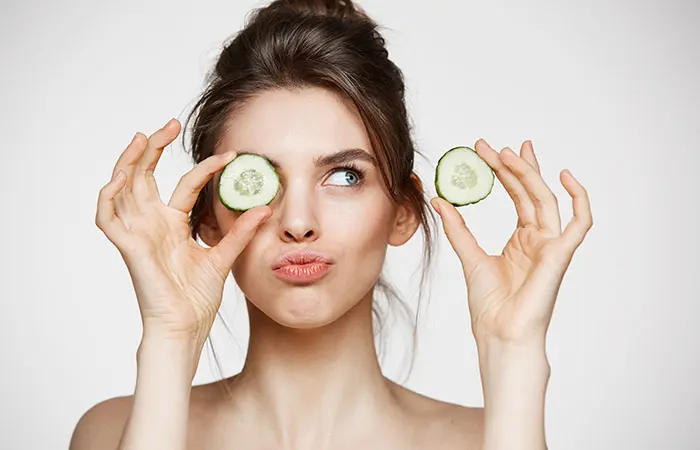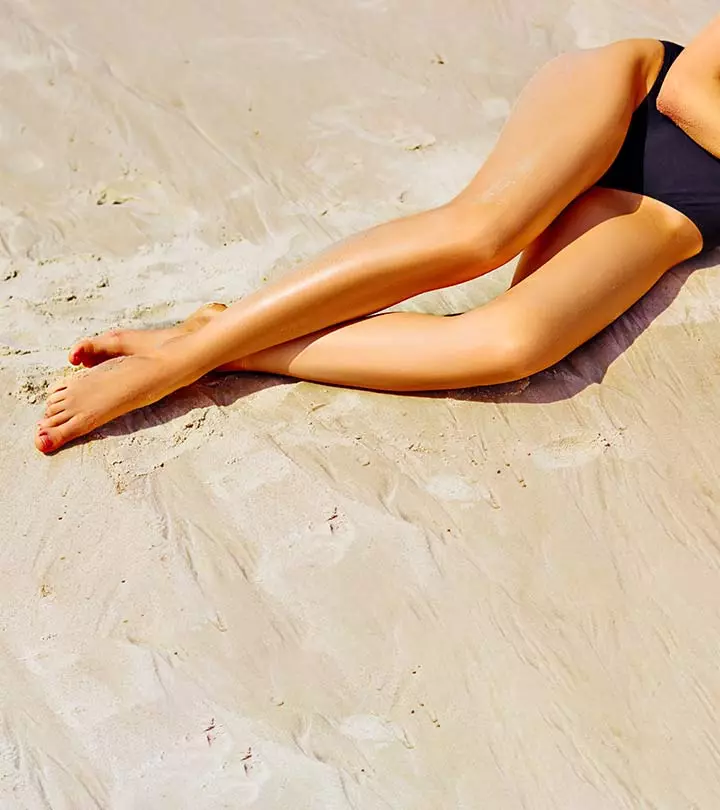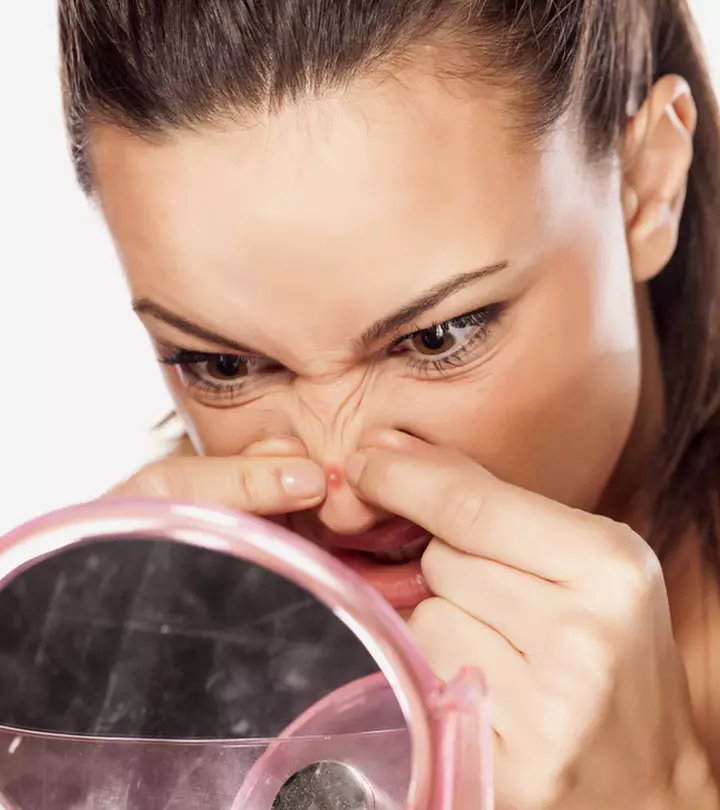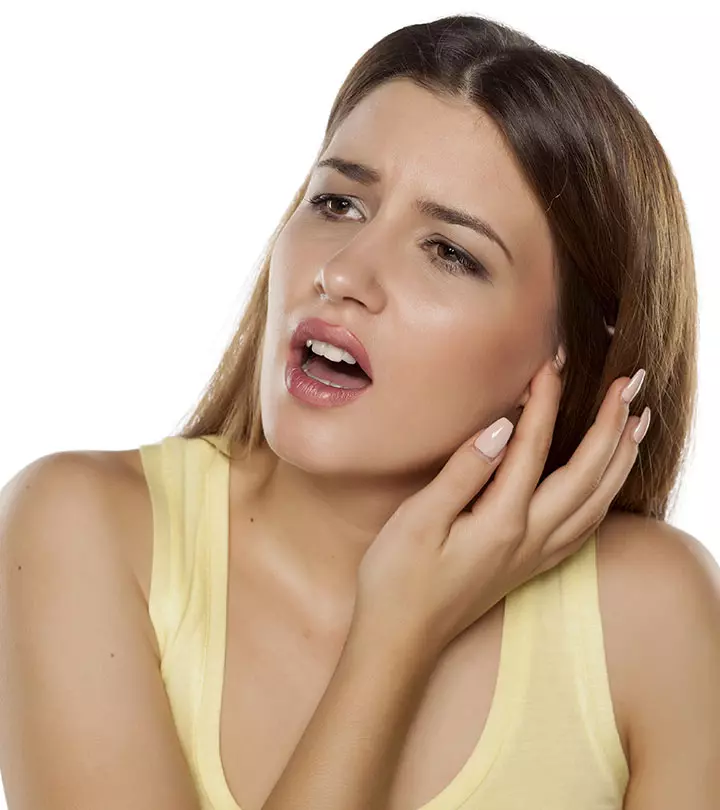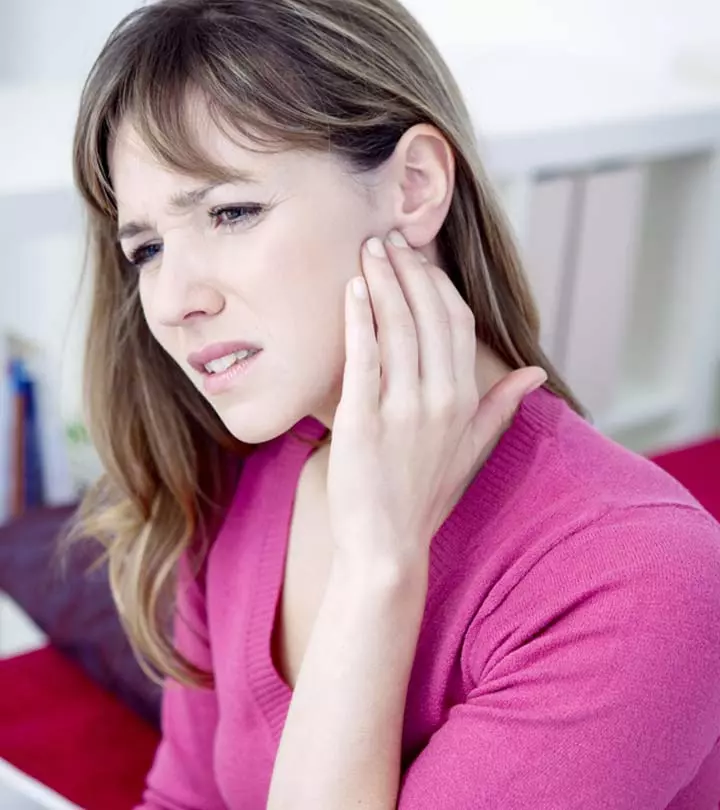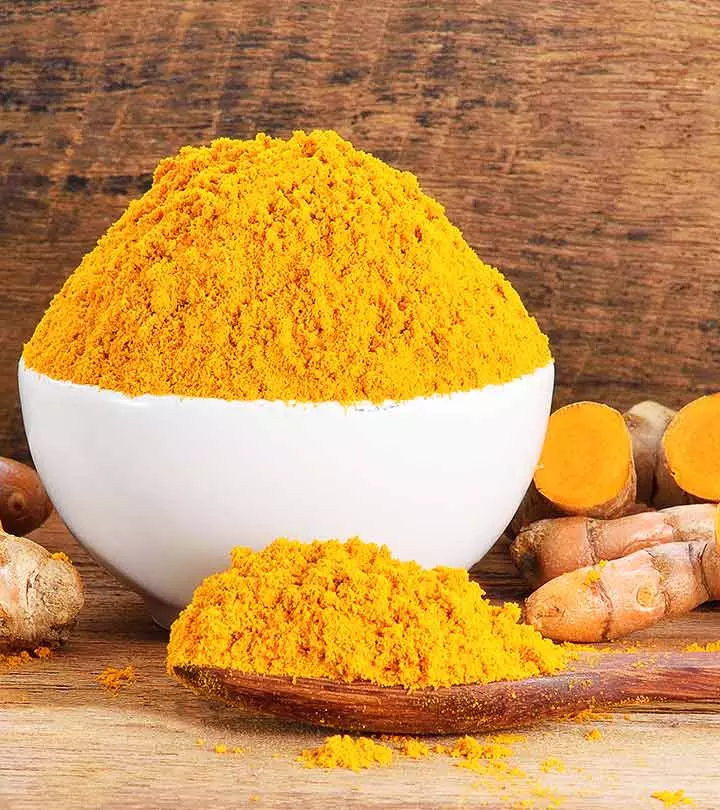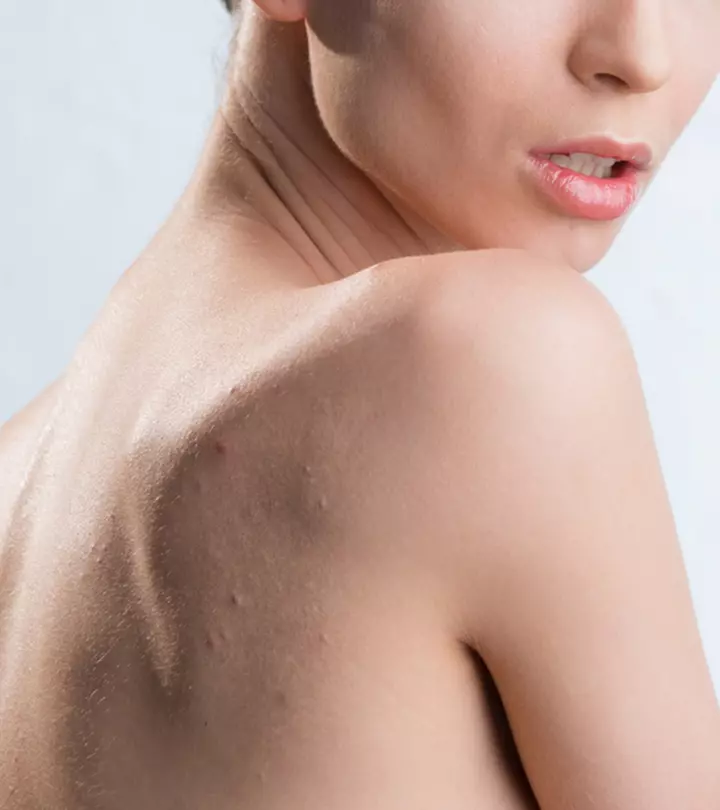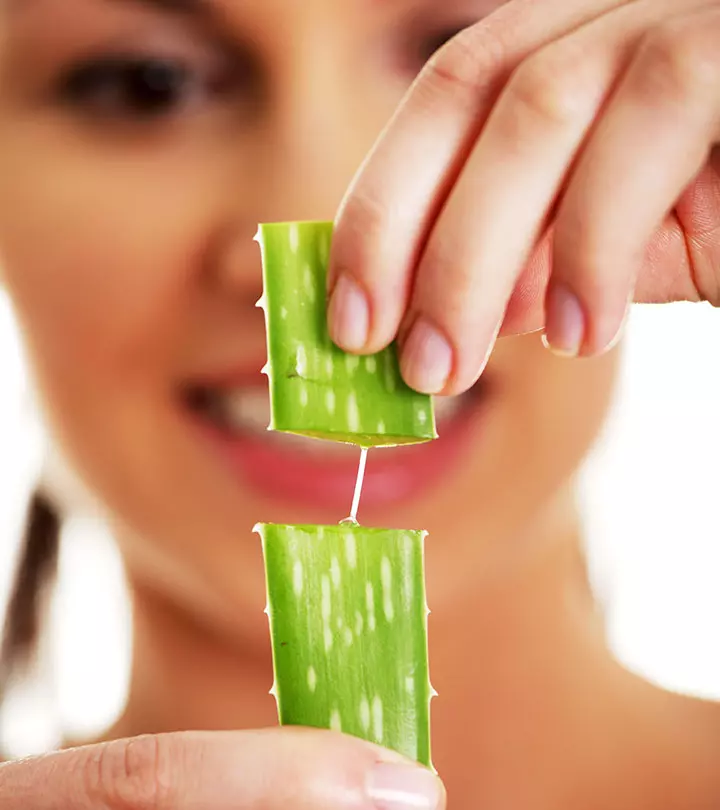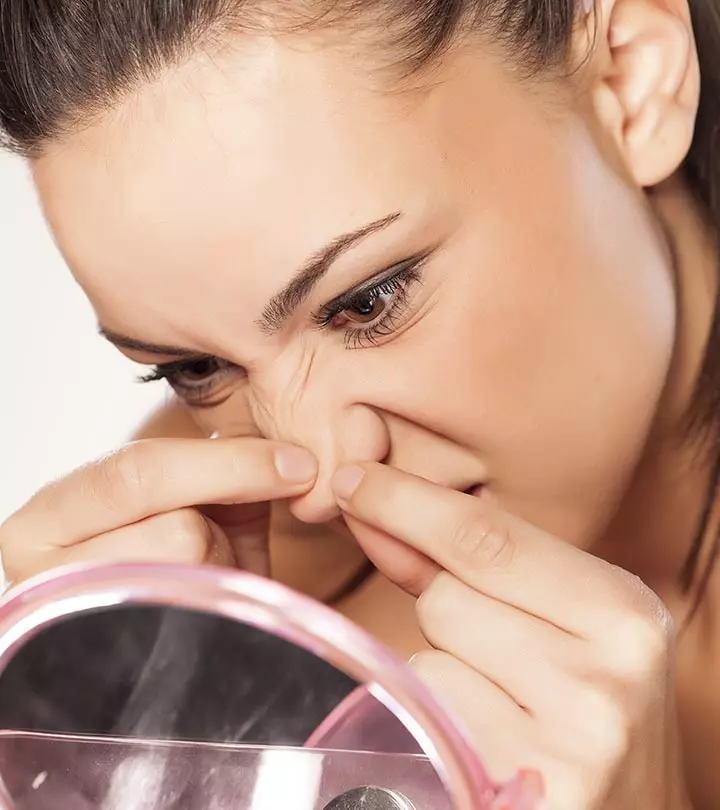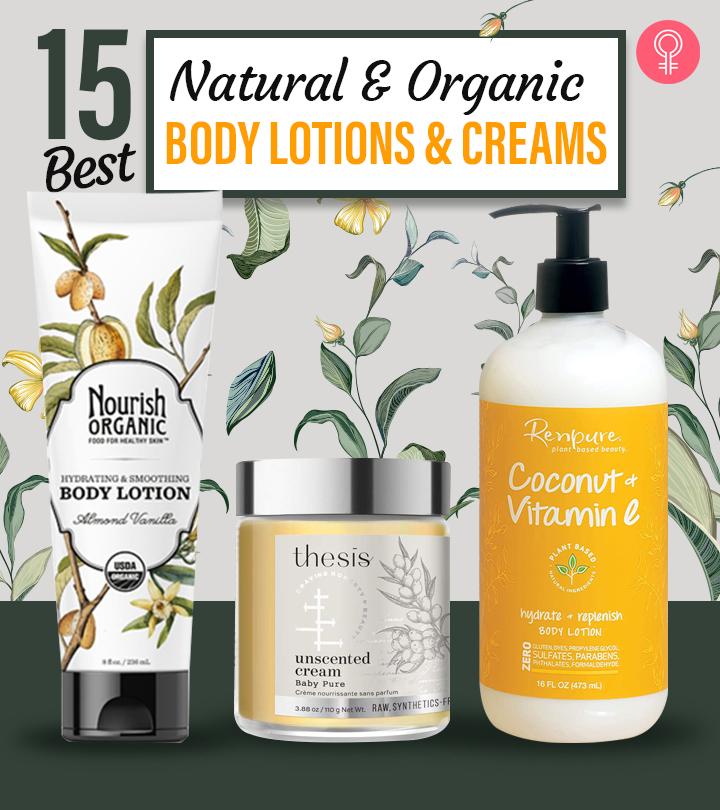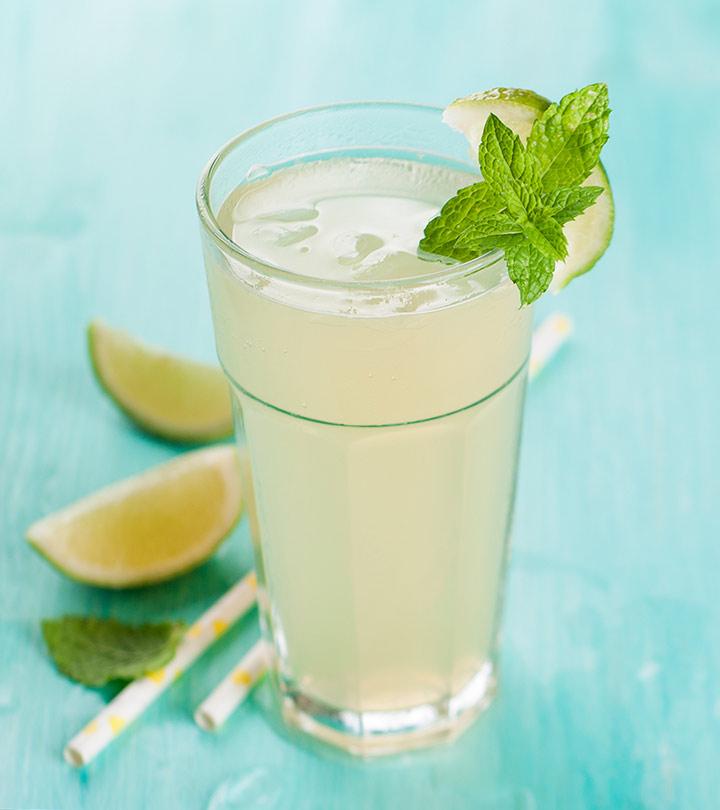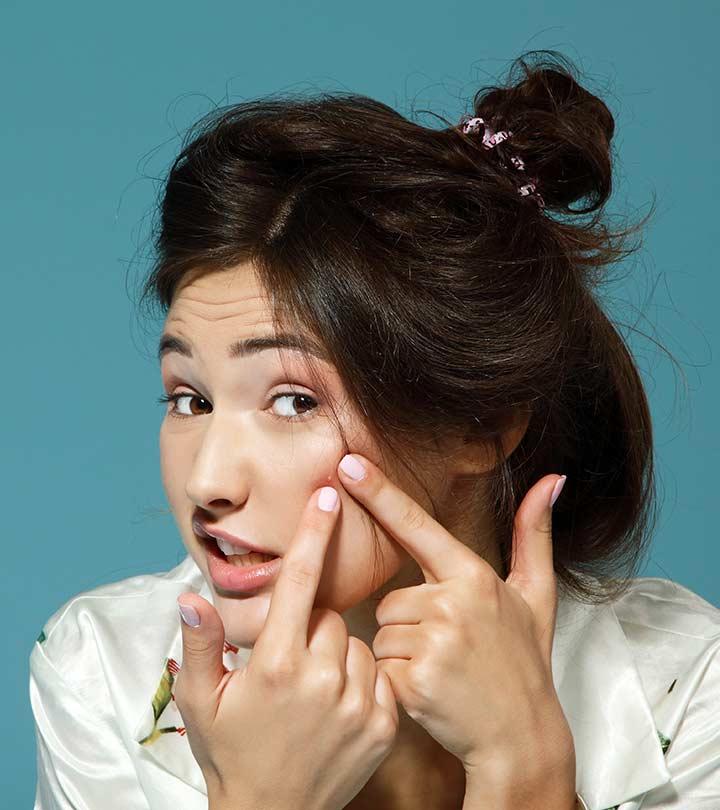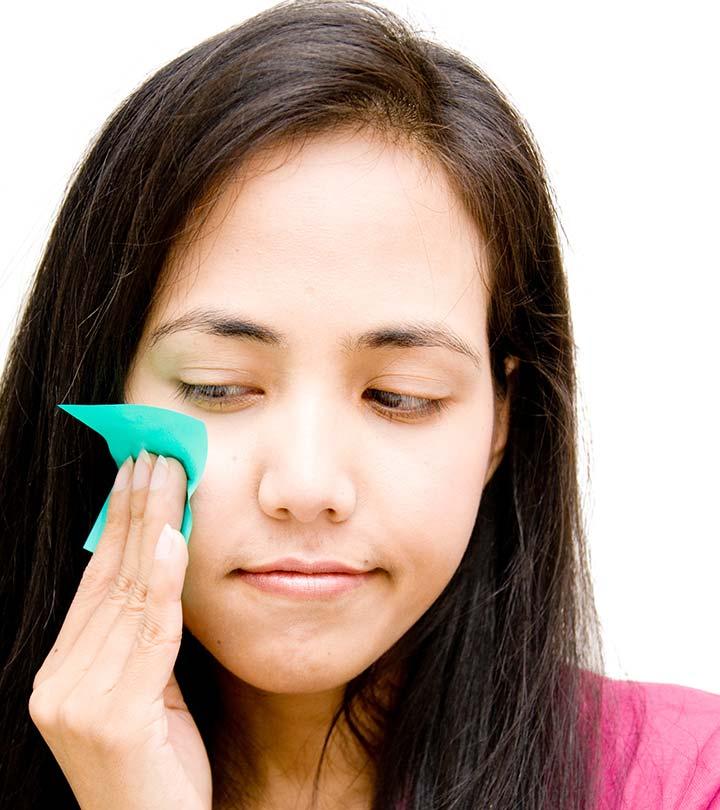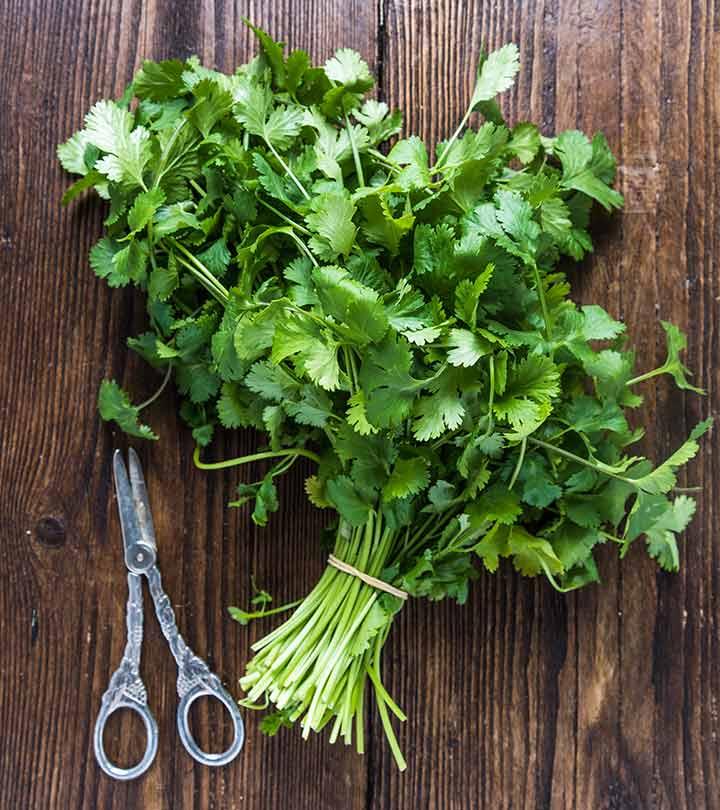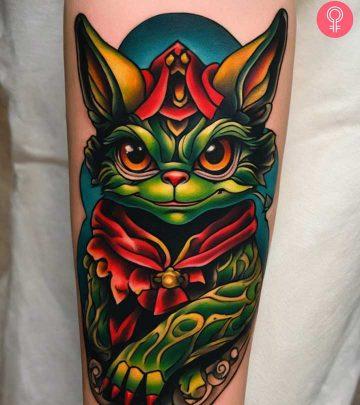How To Get Rid Of Heat Pimples Naturally
Soothe those body heat-induced breakouts with some simple and effective home remedies.
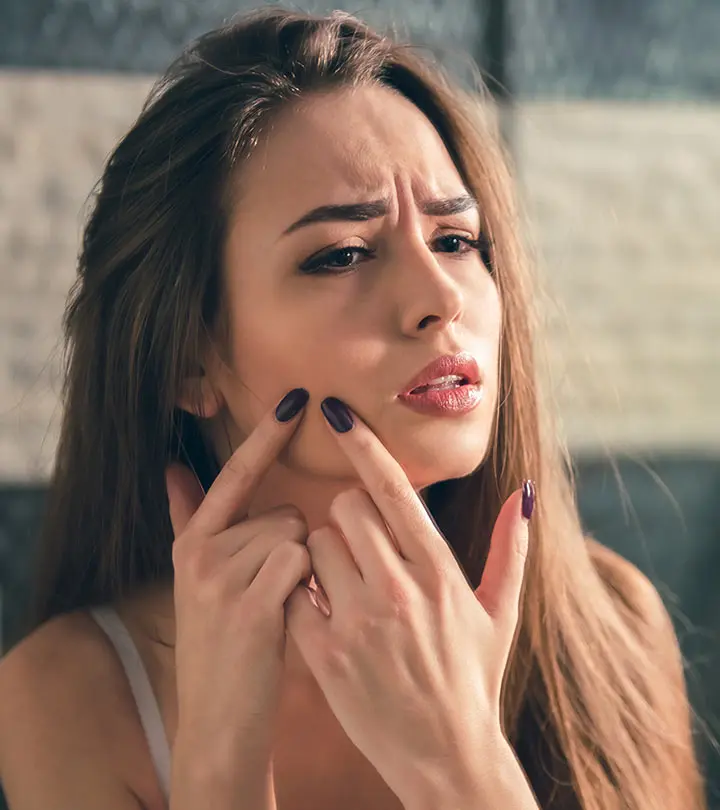
Image: Shutterstock
The red, sweat rash-like pimple that appears on your face can be due to the internal heat of your body, and it is known as heat pimples.. It often occurs right on your cheeks or forehead, making you conscious about it. If you are wondering how to get rid of heat pimples, we have the answer.
If you are struggling with heat pimples, it is crucial to learn the reasons behind them. Once you know the causes, it gets easy to control them. This article explains everything you need to know about heat pimples. Keep reading.
In This Article
What Causes Heat Pimples?
We all know what pimples are. But there is another, more menacing form of this skin problem that, at first, seems like a rash. Heat pimples or acne mechanica are red boils that appear on your skin in patches. These pimples are caused due to exposure to excessive heat or pressure. It may also occur if your skin is rubbed and as a result of frictional stress. The condition worsens when the skin is wrapped under tight clothes.
Your internal body heat is what causes them. It is observed that some people have low or normal body heat, while others have high internal body heat. This encourages overproduction of sebumi An oily, waxy substance produced by the body’s sebaceous glands to moisten the skin and prevent it from becoming dry. that clogs your skin pores. This ultimately leads to heat pimples.
An international patient survey conducted on 6700 participants found that 24.6% and 13% of the respondents respectively living in hot and humid regions had acne compared to 11.5% of the respondents from cold regions. It was also more frequent in people with moderate or intensive sun exposure (42.8%) compared to the cold region (31.6%).
Other causes include:
- Infection caused by bacteria
- Clogged sweat glands
- Poor diet
- Poor hygiene
- Tight-fitting clothes
- Alcohol consumption
- A weak immune system
In the next section, we will explore a few simple home remedies that can help heal heat pimples.
Home Remedies To Get Rid Of Heat Pimples
1. Castor Oil
As we know, pimples are caused by a microbial infection. The major constituent of castor oil is ricinoleic acid, which exhibits anti-inflammatory and antimicrobiali The property of substances that eliminate microorganisms like bacteria and mold and prevent them from spreading diseases. properties. This can decrease the inflammation associated with the heat pimple (1).
You Will Need
- 2-3 drops of castor oil
- A few drops of sandalwood oil
- 250 ml of boiling water
What You Have To Do
- Mix a few drops of castor oil with sandalwood oil.
- Add the mixture to boiling water and keep it aside for 5-6 minutes.
- Apply this oil mixture to your face.
- Pat your face dry and wash it off the next morning.
How Often You Should Do This
You can do this two times a week.
2. Aloe Vera
Aloe vera gel exhibits antimicrobial properties that can help mitigate any bacterial infection that causes pimples. It also promotes faster healing and even has a soothing effect on the heat pimple (2).
You Will Need
Aloe vera gel
What You Have To Do
- Take some aloe vera gel in a teaspoon.
- Apply this to the pimple.
- You can leave it on overnight and rinse off in the morning.
How Often You Should Do This
Repeat once a day until the pimple is healed.
3. Honey
Honey has always proven to be effective in fighting infection. Its antibacterial properties may help in reducing the infection that causes pimples. It also has a cooling and soothing effect on your skin (3).
You Will Need
- 1 tablespoon of honey
- A clean gauze
What You Have To Do
- Using one end of the gauze, apply honey to the pimple.
- Repeat this several times with a fresh gauze.
How Often You Should Do This
Repeat 3-4 times daily.
4. Lemon Juice
As we are aware, lemon is rich in vitamin C and has antibacterial properties (4). These properties can help in reducing heat pimples and soothing the skin surrounding them.
You Will Need
- 1 teaspoon of lemon juice
- Honey
What You Have To Do
- Mix the lemon juice and honey.
- Apply this to the pimple and leave it on for 5 minutes.
- Rinse off with cold water.
How Often You Should Do This
Do this once daily.
 Quick Tip
Quick Tip5. Turmeric Powder
Turmeric contains curcumin that is anti-inflammatoryi The property of substances that reduce inflammation, which includes redness, pain, and swelling in the body. . A mixture of turmeric and yogurt can reduce the swelling associated with heat pimples and soothe your skin (5), (6). Just like vitamin E, curcumin is an excellent antioxidant that can improve skin health.
You Will Need
- 1 teaspoon of turmeric powder
- 1-2 tablespoons of yogurt
What You Have To Do
- Take a teaspoon of turmeric powder and make a thick paste by mixing it with the yogurt.
- Apply to the pimple and allow it to dry.
- Wash off with cold water.
How Often You Should Do This
For the best results, apply this paste two times a day.
6. Neem Leaves
Neem possesses antimicrobial and anti-inflammatory properties (7). These can help alleviate the swelling and infection that arise with a heat pimple. The paste can also have a cooling effect on your skin, making it suitable for sensitive skin too, and promote faster healing.
Ritam Chandra, a beauty blogger, shares her homemade remedy using neem leaves for pimples. She further states, “This remedy works the best for me rather than those like cinnamon, cloves etc etc. In other words this DIY is my ‘Holy Grail’ to treat my pimples (i).”
You Will Need
- 8-10 neem leaves
- A teaspoon of sandalwood powder
What You Have To Do
- Boil some neem leaves in water, strain the decoction, and let it cool.
- Add a teaspoon of sandalwood powder to this decoction to make a fine paste.
- Apply the paste to the heat pimple.
- Wash it off with cold water after it dries completely.
How Often You Should Do This
Apply once daily to see a visible change.
7. Cold Compress
Studies show that a cold compress can help mitigate heat pimples. The low temperature of the compress can have a soothing effect on skin inflammation associated with pimples (8).
You Will Need
Ice water
What You Have To Do
- Soak a clean washcloth in ice-cold water.
- Wring out the excess water and place it on the area with pimples.
- Do this for 10 minutes.
How Often You Should Do This
Repeat this procedure 3-4 times a day.
8. Apple Cider Vinegar
Owing to its antimicrobial properties, apple cider vinegar can effectively combat bacterial infections (9). This may help get rid of the pimple and aid faster healing.
You Will Need
- 1-2 teaspoons of apple cider vinegar
- Water
What You Have To Do
- Take a teaspoon of apple cider vinegar and dilute it with water.
- Dab a bit of this solution on a cotton ball and apply it to the heat pimple.
- Leave it on and secure it with surgical tape or band-aid.
- Wash it off after a couple of hours.
How Often You Should Do This
You can do this once a day.
9. Cucumber
Cucumber extracts are rich sources of bioactive compounds that can reduce the appearance of lesionsi An abnormal area of tissue inside or outside the body that is usually caused by disease or physical trauma. or pimples that arise as a result of body heat. It has a cooling effect on your skin (10).
You Will Need
- A fresh cucumber
- Cold water
What You Have To Do
- Grate a fresh cucumber and collect the pulpy mixture.
- Use this on the pimple.
- Wash it off with cold water after 15 minutes.
How Often You Should Do This
Apply this paste once a day to achieve fast results. Keep the cucumber pulp in the fridge for a few minutes for a cooling effect on the skin and to soothe rashes.
This was a list of the home remedies that you can use to treat heat pimples. Next, we will see what lifestyle changes you can adopt to avoid heat pimples.
Oatmeal and essential oils like tea tree, witch hazel, chamomile, and lavender are some other ingredients that can be used to naturally get rid of heat pimples. Next, we will see what lifestyle changes you can adopt to avoid heat pimples.
Other Lifestyle Changes To Avoid Heat Pimples
- Ensure that you have a balanced diet, replete with nutrients and fiber.
- Avoid excessive intake of processed dairy products and fish.
- Drink more water as it promotes the circulation of essential nutrients to your skin and maintains skin health, keeping it supple.
Avoid getting stressed easily as this can result in the appearance of pimples. You can try a few simple relaxation techniques, like deep breathing, to relieve anxiety and stress. - Wear loose-fitting clothes that do not result in irritated skin.
- Use skincare and cosmetic non-comedogenic products.
- Do not touch your face with unclean hands. Our hands carry a large number of bacteria that can cause infection.
- Get adequate rest and sleep every day.
- Skin cleaning is a must, especially after you have exposed yourself to dust and pollution.
- Skin exfoliation is required once every week to avoid pimples and remove dead skin cells.
- In case you observe heat pimples frequently, seek immediate medical help. Consult your dermatologist to ensure a safe and effective treatment.
 Fun Fact
Fun FactWhen it comes to treating heat pimples, following the guidance of a dermatologist is recommended. Let’s look at some of the strategies they may suggest to alleviate them.
Treatment For Heat Pimples
Heat pimples are a common skin issue in summers. A dermatologist may ask you to regularly clean the affected area with a gentle, hypoallergenic soap to prevent further irritation. Along with that, loose-fitting clothing made of natural, breathable fabrics like cotton can minimize friction and sweating and provide more comfort (11). They may also suggest using over-the-counter hydrocortisone creams to reduce inflammation and itching. In more severe cases, prescription creams or oral antibiotics might be prescribed to address any infection and prevent complications (11).
A dermatologist can provide personalized advice based on the severity of your condition. Consulting them ensures you receive tailored treatment and expert guidance for effectively managing heat pimples.
Infographic: Top 4 Natural Remedies For Heat Pimples
Heat pimples have to be one of the most frustrating kinds of skin breakouts. Thankfully, there are some really simple and easy natural remedies to soothe these pesky bumps. Check out the infographic below for the top 4 home remedies that can help you win the battle against heat pimples.

Illustration: StyleCraze Design Team
Heat pimples are common during summers and are painful, sore, and uncomfortable. However, you can easily avoid them or relieve the symptoms by following the recipes and methods discussed in the article. These remedies may soothe skin redness and discomfort associated with heat pimples.
However, everyone may not see the same result. So, consult a doctor if you do not notice any difference in the pain, inflammation, and discomfort.
Frequently Asked Questions
How long does a heat pimple last?
Heat pimples can last up to two to three days. However, in severe cases, they may last for a week.
What do heat pimples look like?
Heat pimples are small, inflamed, blister-like (with pus), and have a constant prickly and itchy sensation.
What is a good cream for heat rash?
Hydrocortisone creams may manage heat rashes. They can be applied twice or thrice a day.
Key Takeaways
- Heat pimples are rash-like breakouts that occur due to exposure to excessive heat or pressure.
- Poor diet and nutrition, clogged pores, and a weakened immune system are some other causes of heat pimples.
- Natural ingredients like aloe vera gel, honey, or cucumber may help soothe this condition and fight any skin infection.
- Wearing sun-protective gear, drinking plenty of water for hydration, and following a good summer skincare routine for sun protection may help prevent these pimples caused by prickly heat.
Soothe and cool down your skin with a simple remedy. Watch this video to learn how this ancient fruit can help manage and treat heat pimples.
Personal Experience: Source
StyleCraze's articles are interwoven with authentic personal narratives that provide depth and resonance to our content. Below are the sources of the personal accounts referenced in this article.
(i) When this Simple NEEM DIY can treat my fat ugly horrible Acne’s so why can’t Yours ?https://www.blushingshimmers.com/2015/10/when-this-simple-neem-diy-can-treat-my.html?m=1
References
Articles on StyleCraze are backed by verified information from peer-reviewed and academic research papers, reputed organizations, research institutions, and medical associations to ensure accuracy and relevance. Read our editorial policy to learn more.
- Therapeutic role of Ricinus communis L. and its bioactive compounds in disease prevention and treatment, Asian Pacific Journal of Tropical Medicine.
https://www.apjtm.org/article.asp?issn=1995-7645;year=2018;volume=11;issue=3;spage=177;epage=185;aulast=Abdul - Evidence based medical use of aloe vera extracts, short review of literature, International Journal of Research in Medical Sciences, ResearchGate.
https://www.researchgate.net/publication/320098633_Evidence_based_medical_use_of_aloe_vera_extracts_short_review_of_literature - Honey: A Therapeutic Agent for Disorders of the Skin, Central Asian Journal of Global Health, US National Library of Medicine, National Institutes of Health.
https://www.ncbi.nlm.nih.gov/pmc/articles/PMC3666392/ - Phytochemical, antimicrobial, and antioxidant activities of different citrus juice concentrates, Food Science & Nutrition, US National Library of Medicine, National Institutes of Health.
https://www.ncbi.nlm.nih.gov/pmc/articles/PMC4708628/ - Evidence of curcumin and curcumin analogue effects in skin diseases: A narrative review. Journal of Cell Physiology, US National Library of Medicine, National Institutes of Health.
https://www.ncbi.nlm.nih.gov/pubmed/30073647 - Curcumin: A Review of Its’ Effects on Human Health, MDPI, US National Library of Medicine, National Institutes of Health.
https://www.ncbi.nlm.nih.gov/pmc/articles/PMC5664031/ - Therapeutics Role of Azadirachta indica (Neem) and Their Active Constituents in Diseases Prevention and Treatment, Evidence-Based Complementary and Alternative Medicine, US National Library of Medicine, National Institutes of Health.
https://www.ncbi.nlm.nih.gov/pmc/articles/PMC4791507/ - In Vitro Antioxidant and Anti-Propionibacterium acnes Activities of Cold Water, Hot Water, and Methanol Extracts, and Their Respective Ethyl Acetate Fractions, from Sanguisorba officinalis L. Roots, MDPI, US National Library of Medicine, National Institutes of Health.
https://www.ncbi.nlm.nih.gov/pmc/articles/PMC6278274/ - Antimicrobial activity of apple cider vinegar against Escherichia coli, Staphylococcus aureus and Candida albicans; downregulating cytokine and microbial protein expression, Scientific Reports, US National Library of Medicine, National Institutes of Health.
https://www.ncbi.nlm.nih.gov/pmc/articles/PMC5788933/ - Exploring cucumber extract for skin rejuvenation, African Journal of Biotechnology.
https://academicjournals.org/article/article1380726732_Akhtar%2520et%2520al.pdf - Miliaria
https://www.ncbi.nlm.nih.gov/books/NBK537176/
Read full bio of Dr. CP Thajudheen
Read full bio of Anjali Sayee
Read full bio of Monomita Chakraborty





